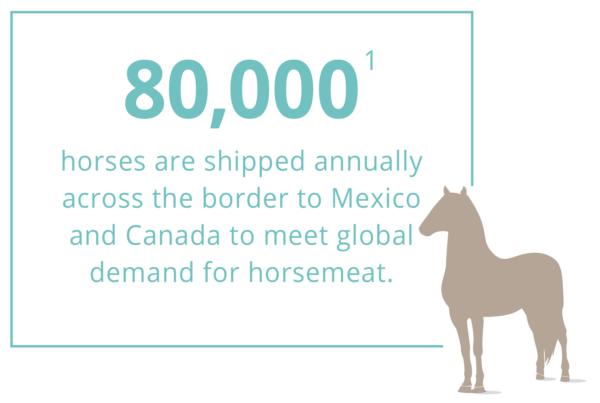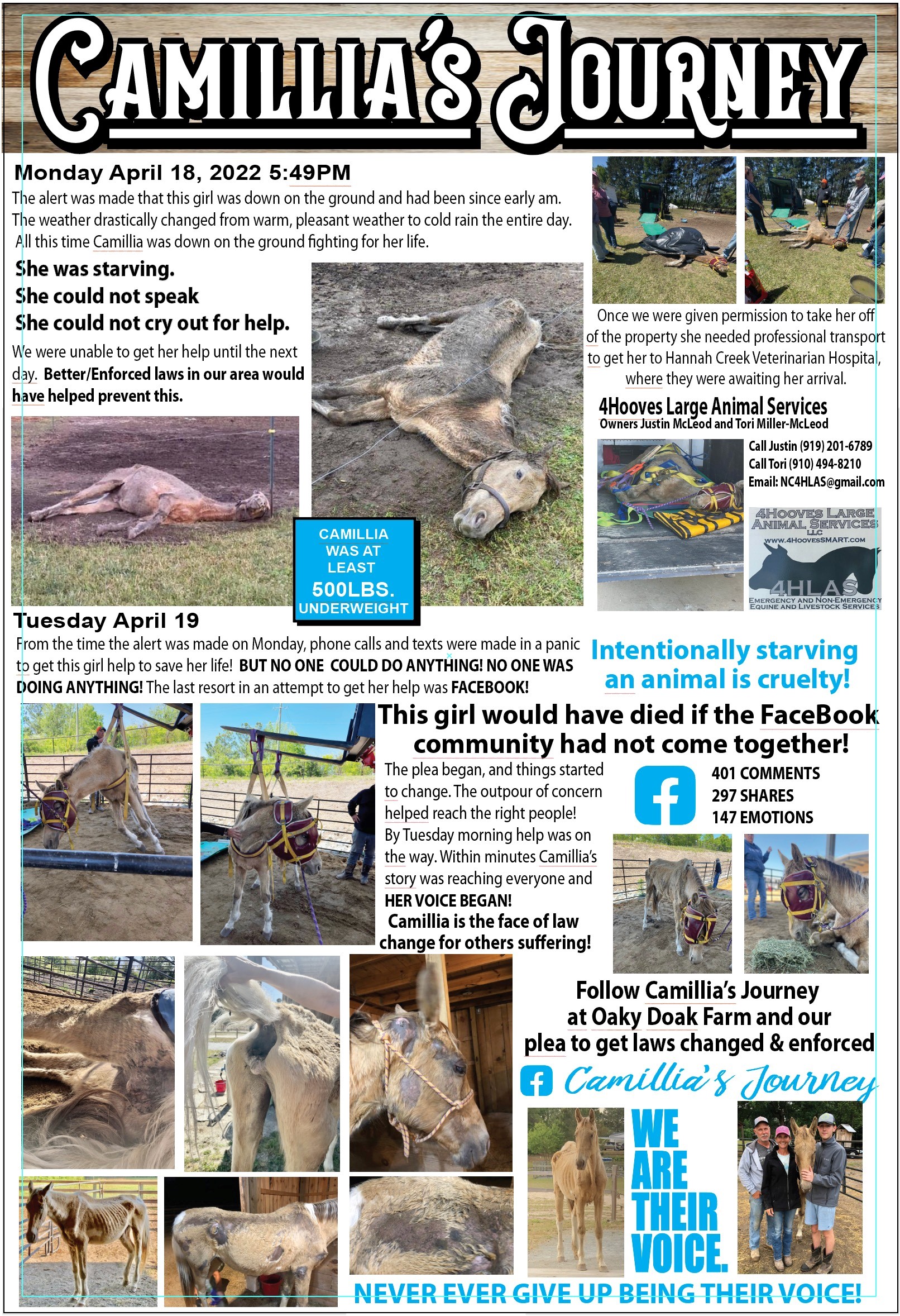To care for horses and donkeys is a 30-year commitment – not something to be undertaken lightly. They need food and water, shelter, exercise, grooming, and training as well as an environment where they feel safe.
Many people who adopt horses underestimate what caring for these animals entails: daily care, building trust, patience, and time.
Some people invest in these animals expecting a payback — show or race results — and are disappointed when they don’t perform. When horses and donkeys get older or sick, they are offloaded because they are a financial drain. These are some but not all of the reasons horses and donkeys may be abandoned or sold to individuals or through auction. It is here that they may enter the slaughter pipeline.

Although slaughtering horses for meat consumption has been banned in the United States since 2007, it is estimated that over 80,0001 horses are shipped annually across the border to Mexico and Canada to meet global demand for horsemeat. In many instances, “kill buyers” — individuals who go to auctions expressly to buy horses and ship them across the border for a profit — routinely and often outbid other buyers who may offer these animals a good home. There has been legislation introduced into Congress to ban this practice, but until it gains traction, every horse is at risk for entering this underground pipeline.
Caring for our Horses and Donkeys
The donkeys and horses arrive at Oaky Doak Farm with walls of hurt and disappointment, flinching from the touch of a hand. Physical evidence on their bodies and emotional disconnect in their eyes are indicative of trauma that runs deep. We work with each horse to assess their temperament, restore their health, and to gain their trust. Our long-term goal is to give them a safe environment to live out their days or to rehome them to the right caregiver, all through patience, love, and excellent care.
What does excellent care mean?
Quarantine
All horses are quarantined upon arrival to assess their health and ability to get along with the other horses in our care.
Veterinarian Costs
Many of our horses arrive with health issues. Some are blind or partially blind. Some require dental attention. Others are underweight. We work with veterinarians to develop a treatment plan or make them as comfortable as possible.
Food, Shelter and Water
Each horse has access to water and hay in our pastures. Feed is provided individually based on dietary needs. We go through a lot of feed and hay on a monthly basis! Although each horse has his/her own stall, they are free to roam our pastures and just be horses.
Clean Pasture
Pastures are scooped daily so our animals have a clean place to frolic and play. Many of them have stood knee-deep in mud and their own waste before arriving at our Farm.
Farrier Services
Good hoof care is paramount because four hooves support 900-2,000 pounds! Farrier services include trimming each hoof so it retains proper foot function. Additional farrier services may berequired when dealing with injured or diseased hooves.
Camillia’s journey
Camillia was found lying in the mud on a farm, severely neglected. Underfed and unable to stand or speak, she was at least 500 lbs underweight. Thanks to a Facebook post, the local equestrian community banded together to save her. By the next morning help was on the way and Camillia’s journey began. She is now living a much better life here at Oaky Doak Farm, and her former owner is facing animal cruelty charges for the harm they caused.
Follow Camillia’s Journey on Facebook for more updates and photos:




